FILM INTERVIEW – After the screening of the film Halfway Home, we talked with Isti Madarász, the director, about the film, the genres of fantasy, sci-fi and horror, as well as the present and future of these genres in Hungary.
theGeek: As a video game portal called theGeek, we cannot fail to note that Halfway Home resembles a video game in many places… For example, in terms of the “quest”-type tasks of the main character, as well as the “main boss” character of János Kulka… What do you think about this? your opinion Do you play?
Isti Madarász: I like everything that starts with geeks, but I don’t play video games a lot, but the screenwriter Attila Veres does a lot more and I think that the video game analogy is not accidental… However, I tend to compare the film to an amusement park and a roller coaster rather than a video game. Our goal with this film was for it to be fun, with rules and rhythm. Let the viewer be in it and take it with you. In some ways, the video game analogy is also appropriate, as we want the viewer to want to walk through the adventures as if they were there and not just sit back and watch from afar. I am very glad that you compared the movie to a video game.
tG: Where did the inspiration for this film come from?
M.I.: It came from the brain of screenwriter Attila Veres, who is also a horror author and writes horror short stories and novels. They are also published abroad. This film was his story, but as is typical of his own material, he orchestrated the story much darker. There were almost horror elements in it. When it came to me, I told him that I saw a much more popular, more fantasy and less horror story in this, and thank God he was a partner in this, and together we retuned it to something funnier, lighter, more fairy-tale-like. I really like Hungarian folk tales and this very strange Central European folklore. I think what superheroes are to Americans is our very strange world of words. This is also the reason why there are such strange things in the story, which could even be called grotesque, but I think it is completely normal that the good witch lives in a panel on the 17th floor and constantly drinks brandy and her voice is hoarse from cigarettes. I think it’s not grotesque, it’s normal, it suits us here in Hungary better than the fairy with glittering wings. We also wanted the Autopsy Master to be a classic, clearly drawn main villain. This is also where he spews fire, since the main villain is a “seven-headed dragon” – he’s almost a DC, Marvel main villain.
tG: We know quite clearly about the story that it takes place in the present, in 2022, since we know that the two protagonists were born in 1993, and the girl turns out to be 29 years old. At the same time, vehicles or objects can be seen in the film that can be linked to completely different eras: for example, we last saw such an old bus in the fifties, and the Rubik’s cube seen in the hands of the main character was more fashionable in the eighties. Did the mixing of ages at this level have any significance, any message?
M.I.: Yes, this is my passion. It was typical of my previous film The Loop that I tried to blur time a little. Also, because these stories somehow don’t work so well in the Hungarian context. In this type of story, it is therefore necessary to stylize both the place and the time a little. And the best way to do this is to mix it up a bit. For example, today’s RTL news is broadcast on a very old TV. Today we see Bors magazine, but the bus is old. It didn’t matter if it was the fifties or the seventies, the main thing was to look good, that was the main goal, and to have such a very strange mix, from which nothing could stand out. We hope this worked. If the locations are too familiar to the viewer, it spoils the story a bit.
tG: Does this somehow enhance the surreal, fabulous feeling?
M.I.: Yes, so the point is that our fairy tales don’t take place in Ózd, for example, but beyond the “Glass Mountain, where the little pig with a short tail roams.” I really believe that since Hungary is small, it is too realistic and we know each other too well. We don’t have undiscovered places, like in America or Asia, where you go out to some prairie and you don’t know where you are, but this is Budapest, where the weekly bus goes that turns back at Bosnyák Square, so we have to get out of this type of stories a little bit.
tG: We have a lot of romantic comedies, it’s a popular genre – we can say that this film also belongs to this genre to some extent – but it’s also a horror film, which is a more advanced genre. After we recently had another horror film, Post Mortem (which we sent to the Oscars), how much more widespread and popular do you think this genre can be here?
M.I.: I think horror could be very successful in our country as well, since such films are very popular in cinemas and on streaming channels abroad. Horror is a very good escapist genre, because it is completely different from what we live in, so it is very good to get chills with it. The horror genre would be much easier to survive in Hungary than, say, if I wanted to direct a western film (and I really want to), the only problem with horror is that it has to be made very professionally. Since there is a lot of it, there are many crappy, mediocre, but also very good horror, but the viewer is already waiting for the latest quality. The hard thing about horror is that it’s either really good, or the dog doesn’t care. It’s a bit like comedy: I either laughed or I didn’t. Horror: was I scared, surprised or impressed or not? By the way, I like horror because I am very attracted to faith and spirituality, and these topics can best be included in horror. In addition, a lot of moral, deep content and emotions can be woven into horror, but all this must be done well. Unfortunately, right now the flag is not in such a way that they support crazy many genre films, but I really push for horror, sci-fi as well… and of course, romantic comedy as well. By the way, most people watch it, that’s why everyone wants to arrange it, it never occurred to me. The Halfway Home was a fairy-tale film with a romantic twist in my mind, but I’m also very happy that you can laugh at it.
tG: Anyway, why do you think the romcom genre works best?
M.I.: I don’t think romcom works the best for us either, only the distributors think so, that’s why they dump most of it on us. Of course, people long for laughter and romance after the hardships of everyday life, but when Dune, the new Blade Runner, or a movie of the caliber of Arrival comes on, they also watch them, because they really like smart sci-fi. At the same time, unfortunately, the support system in Hungary does not believe in these genres so much, so romantic comedies remain. But I will change that! (Laughs.)
Interviewed by -BadSector-

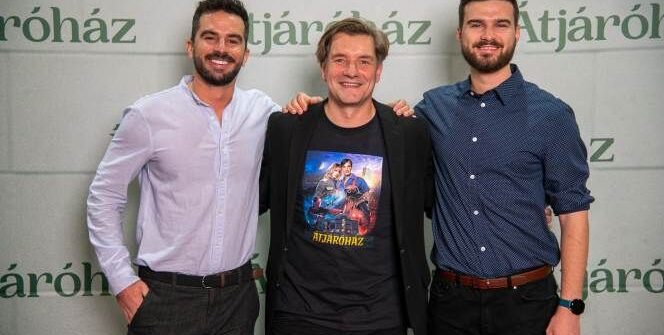
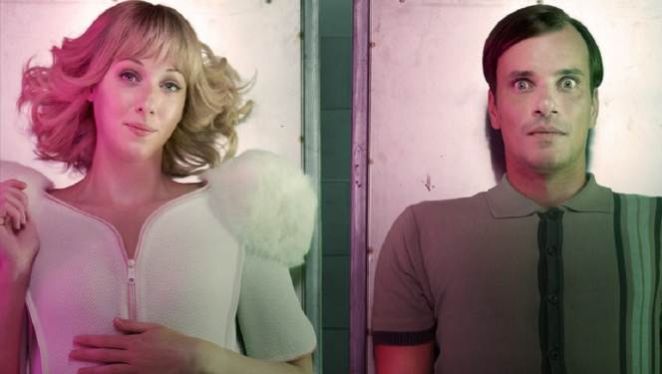
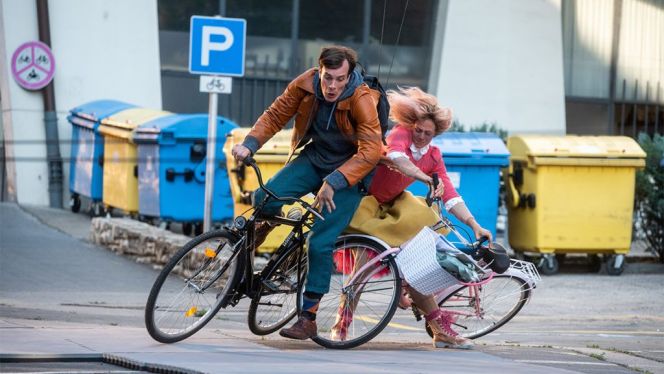
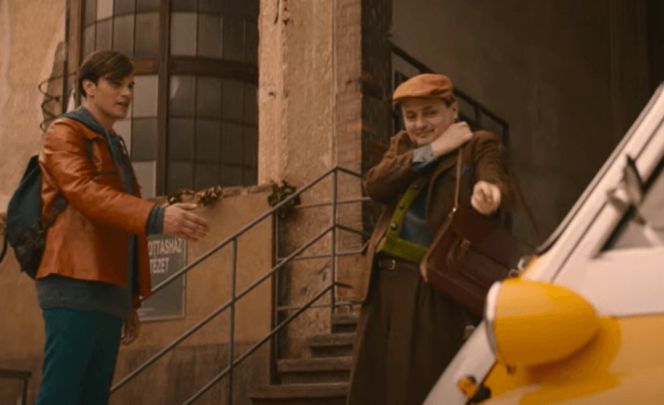






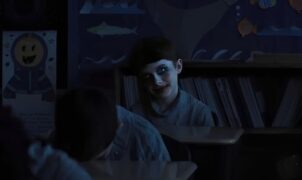




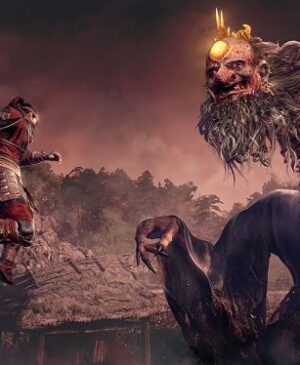
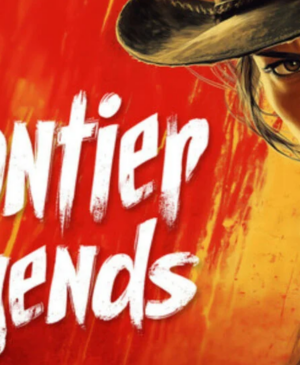
![[TGA 2025] Star Wars: Galactic Racer Focuses on High-Stakes Podrace Runs [VIDEO]](https://thegeek.games/wp-content/uploads/2025/12/theGeek-Star-Wars-Galactic-Racer-300x365.jpg)
Leave a Reply